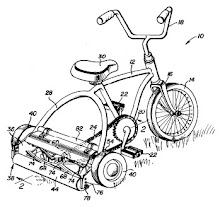.jpg)
What follows is an organized list of my coursework as part of SDM. The concept of "Systems Design and Management" can be hard to encapsulate in a simple sentence, so this exhaustive list can give you a better feel for how I have been applying myself for the last year and a half. The high-level themes provide the best feel for the SDM approach: leadership, the business of technology, and large-scale systems analysis. My personal area of interest is in the integration of renewable energy, visible both in the explicitly energy-related classes as well as the courses in which I performed substantial project work on energy issues. (Energy-focused courses are noted in bold.)
- Technology Strategy
- 15.965 Technology Strategy - Creating and capturing value
- 15.969 User-Centered Innovation - Listening to lead users for product design
- ESD.945 SLaM Praxis - How decisions are made, frameworks for competitive analysis
- ESD.58 Disruptive Technologies - How technologies evolve
- Project: market evaluation of 3rd generation solar cells
- ESD.945 SLaM Lab - Applied technology strategy
- Project: New market penetration for an energy efficiency firm
- Management
- 15.381 The Human Side of Technology - leadership theory as applied to tech
- ESD.930 Leadership - leadership frameworks and personal reflection
- ESD.38 Enterprise Architecture - an engineering approach to organizational transformation
- 15.514 Managerial Accounting - how to think about costs and income
- ESD.763 Supply Chain Management - treating a supply chain as an optimizable design
- 15.281 Advanced Leadership Communication - running effective teams
- HBS1929 Business Marketing - how to manage a team for b2b sales
- Project on how to sell to electrical utilities
- Energy
- 15.366 Energy Ventures - Practical lab in how to launch an energy-industry startup
- ESD.940 Wind Turbine Design - manufacturing, meteorology, and the NREL FAST suite
- ESD.934 Engineering, Economics, and Regulation of the Power Sector - grid operations
- Project: future outlook for demand response
- ESD.865 Modeling Electric Power Systems - numerical optimization with GAMS
- Thesis - Demand Response for Grid Balance with High Renewable Penetration
- System Engineering
- ESD.33 System Engineering - analyzed the Hawaii Clean Energy Initiative as a large-scale systems problem
- ESD.34 System Architecture - applied architectural principles to the Regional Greenhouse Gas Initiative
- ESD.36 Project Management - how to bring in a project on time and on budget, using system dynamics to avoid the traps
- ESD.344 Real Options - mathematical tools for when and how to build flexibility into product design
- Misc
- ESD.301 Statistics - Emphasis on hypothesis testing
- 21F.415 Deutschland im Europäischen Kontext - Deutsche Literatur auf Deutsch
- 6.083 Mobile Application Development - Wrote 5 deployable Android applications
This portfolio of classes has positioned me for a role in product management, project management, corporate strategy, or engineering management.



